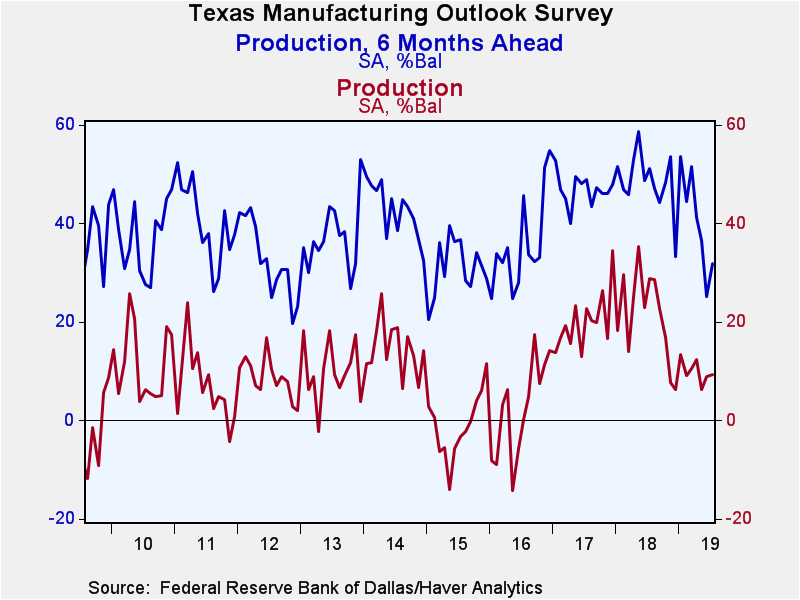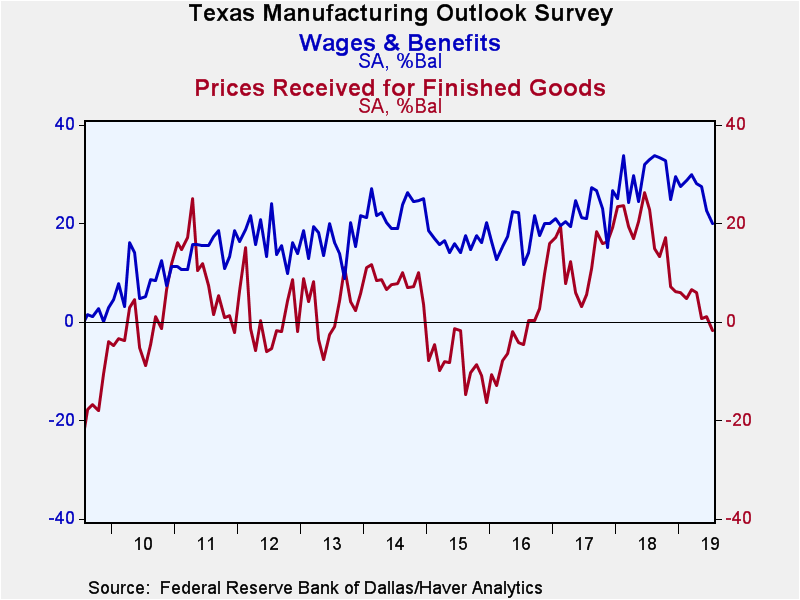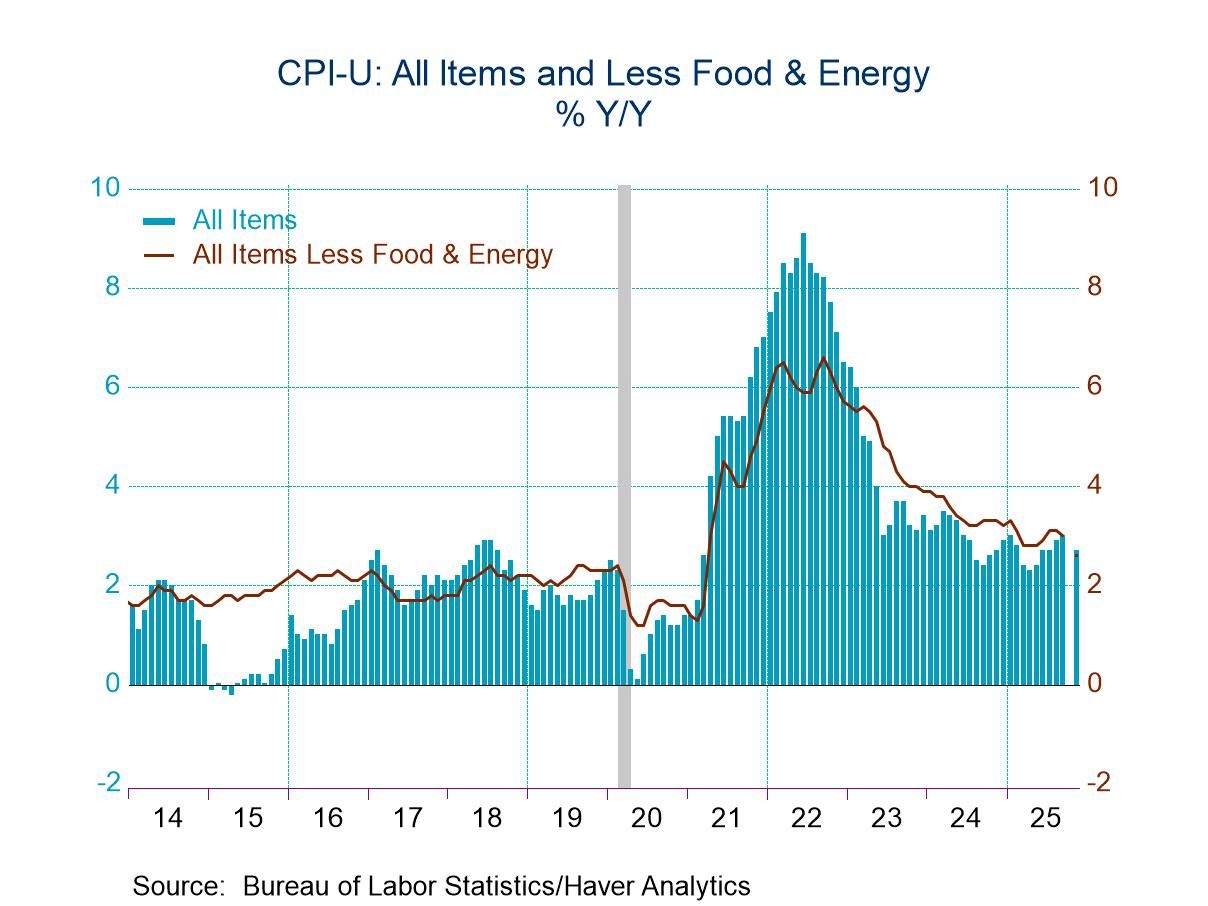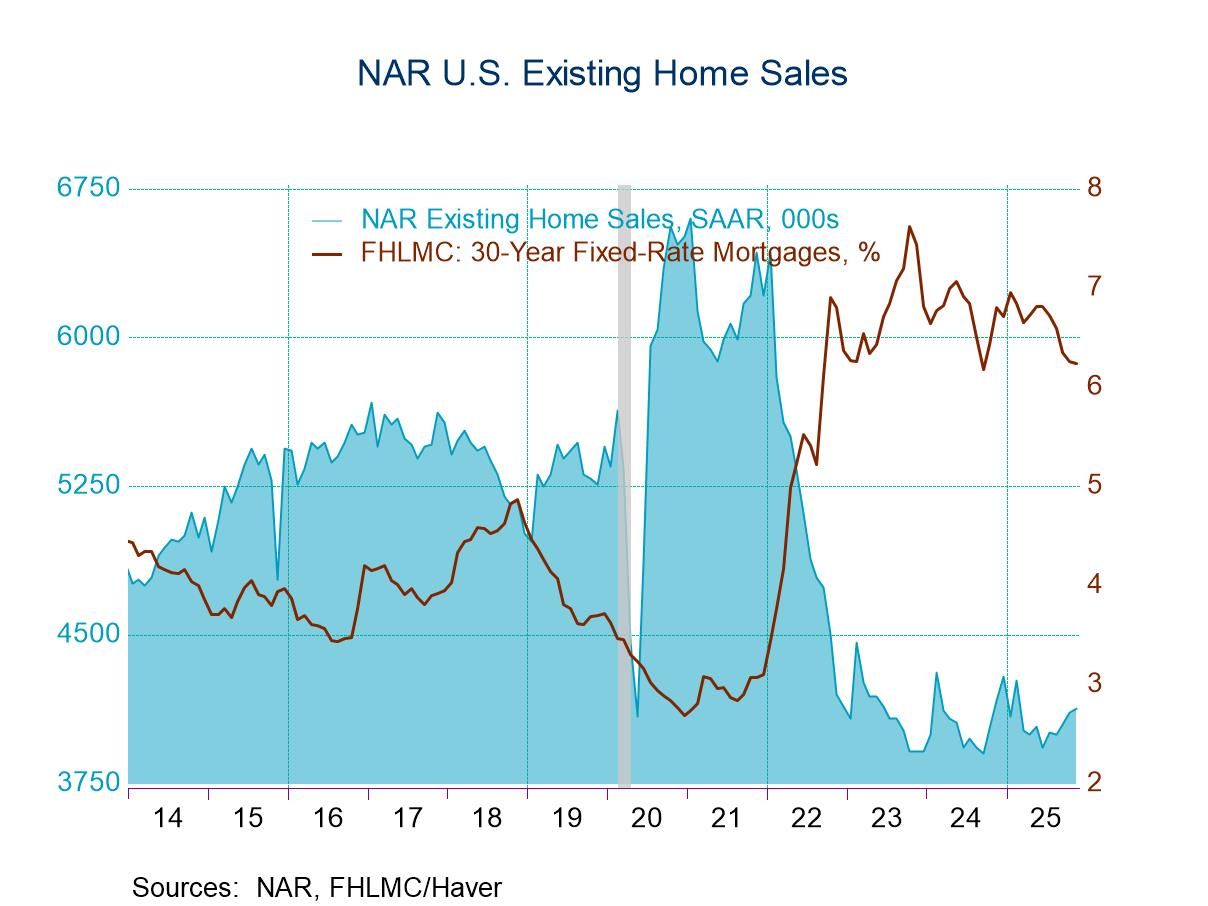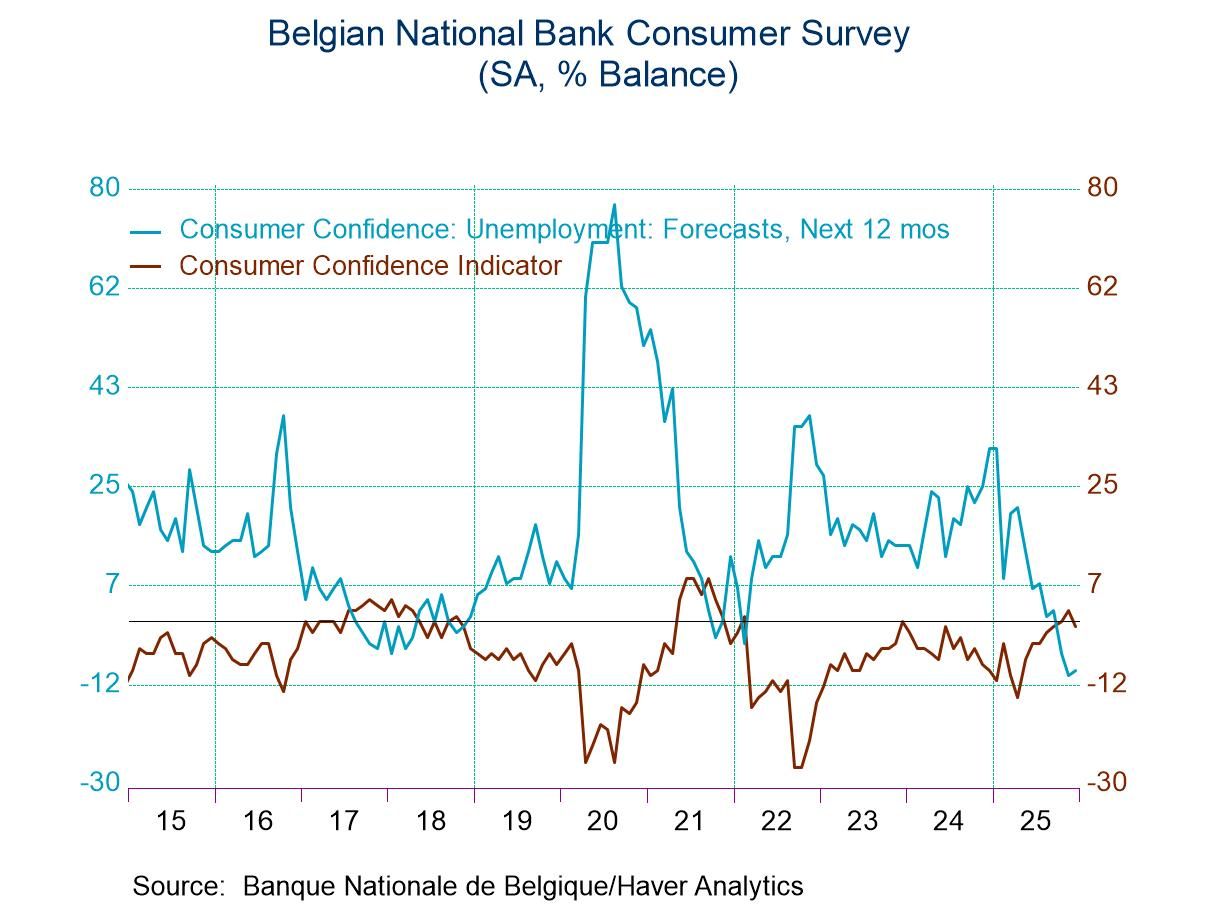 Global| Jul 29 2019
Global| Jul 29 2019Texas Factory Sector Activity Moderation Continues
by:Tom Moeller
|in:Economy in Brief
Summary
The Federal Reserve Bank of Dallas reported in its Texas Manufacturing Outlook Survey that the General Business Activity Index of -6.3 during July compared to June's -12.1. It was the third consecutive monthly reading which was [...]
The Federal Reserve Bank of Dallas reported in its Texas Manufacturing Outlook Survey that the General Business Activity Index of -6.3 during July compared to June's -12.1. It was the third consecutive monthly reading which was negative. It remained near the lowest level in three years, down sharply from the February 2018 high of 38.2, suggesting a developing recession in factory sector activity.
The production diffusion index improved to 9.3, but continued to suggest weak growth. It remained sharply below last year's high of 35.4 during May. The diffusion index for new orders growth improved modestly to 2.7 following June's collapse into negative territory. The wages & benefits reading declined to 20.1, down by one-third from the high last August. Offsetting these weak readings was a rise in the shipments index to 10.2, up from 1.7 in June. It was the highest level since February. The employment index also strengthened to 16.0, up from April's low of 4.6 and the highest level since October.
Inflation pressures remained contained. The finished goods prices received index weakened to -1.7. It was the first indication of price deflation in three years and below the June 2018 high of 26.2. The prices paid index for raw materials gained slightly m/m to 17.0, but also remained below the high in June 2018.
The index of expected business conditions in six months suggested coming improvement with a rise to 6.0. It recovered most of June's decline into negative territory. The future production, new orders growth, shipments and employment indexes each rebounded sharply following weakness during June. Future hours worked and wages & benefits also strengthened. Offsetting these gains, however, was continued weakening of capital spending intentions.
Each index is calculated by subtracting the percentage reporting a decrease from the percentage reporting an increase. When all firms report rising activity, an index will register 100. An index will register -100 when all firms report a decrease. An index will be zero when the number of firms reporting an increase or decrease is equal. Items may not add up to 100% because of rounding. Data for the Texas Manufacturing Outlook can be found in Haver's SURVEYS database.
Ruminations on Inflation from Atlanta Fed President and CEO Raphael Bostic can be found here.
| Texas Manufacturing Outlook Survey (SA, % Balance) | Jul | Jun | May | Jul'18 | 2018 | 2017 | 2016 |
|---|---|---|---|---|---|---|---|
| Current General Business Activity Index | -6.3 | -12.1 | -5.3 | 32.3 | 25.8 | 20.6 | -8.9 |
| Production | 9.3 | 8.9 | 6.3 | 28.9 | 21.8 | 20.2 | 2.4 |
| Growth Rate of New Orders | 2.7 | -6.7 | 1.1 | 17.4 | 14.8 | 11.4 | -7.3 |
| Employment | 16.0 | 8.8 | 11.6 | 29.2 | 20.0 | 11.4 | -4.9 |
| Wages & Benefits | 20.1 | 22.7 | 27.6 | 32.9 | 29.7 | 22.2 | 17.6 |
| Prices Received for Finished Goods | -1.7 | 1.2 | 0.7 | 22.8 | 17.6 | 12.7 | -1.6 |
| General Business Activity Index Expected in Six Months | 6.0 | -2.7 | 9.1 | 35.4 | 31.6 | 34.5 | 8.9 |
| Production | 31.9 | 25.2 | 36.5 | 51.2 | 48.5 | 46.8 | 35.8 |
| Growth Rate of New Orders | 30.7 | 17.2 | 25.3 | 35.4 | 35.9 | 37.7 | 24.3 |
| Employment | 28.2 | 20.2 | 28.9 | 40.1 | 37.6 | 35.2 | 16.7 |
| Wages & Benefits | 44.5 | 39.6 | 32.8 | 53.1 | 50.4 | 43.4 | 34.9 |
Tom Moeller
AuthorMore in Author Profile »Prior to joining Haver Analytics in 2000, Mr. Moeller worked as the Economist at Chancellor Capital Management from 1985 to 1999. There, he developed comprehensive economic forecasts and interpreted economic data for equity and fixed income portfolio managers. Also at Chancellor, Mr. Moeller worked as an equity analyst and was responsible for researching and rating companies in the economically sensitive automobile and housing industries for investment in Chancellor’s equity portfolio. Prior to joining Chancellor, Mr. Moeller was an Economist at Citibank from 1979 to 1984. He also analyzed pricing behavior in the metals industry for the Council on Wage and Price Stability in Washington, D.C. In 1999, Mr. Moeller received the award for most accurate forecast from the Forecasters' Club of New York. From 1990 to 1992 he was President of the New York Association for Business Economists. Mr. Moeller earned an M.B.A. in Finance from Fordham University, where he graduated in 1987. He holds a Bachelor of Arts in Economics from George Washington University.



